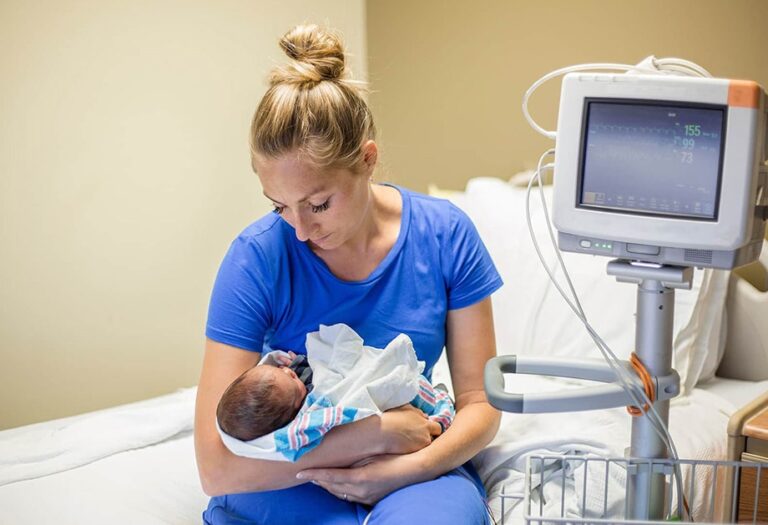An inside look and what it takes to be an NICU nurse
“I’d love to be a NICU nurse; holding babies all day sounds like a dream.” It is an understatement to say this is a common misunderstanding of what a neonatal intensive care unit (NICU) nurse does. NICU nursing is a sub-specialty that cares for infants that are experiencing congenital anomalies, prematurity, system disorders, and other functional problems (https://www.registerednursing.org/specialty/nicu-nurse/). A neonate is an infant in the first month of life. However, NICU nurses do not stop caring for infants simply because they have reached one month of life, and often due to the prematurity of gestational age, they will spend many months in the NICU (https://www.registerednursing.org/specialty/nicu-nurse/).
Working in the NICU was the only place I saw myself ever working in a clinical setting. This passion began in nursing school during my maternal-child rotation. After witnessing a couple of very tough deliveries, I asked my instructor if I could spend a day in the nursery. I was that person that thought it would be a fun day of holding babies; I was wrong. That day I assisted in caring for a drug-addicted neonate, born only a day earlier. We medicated this neonate with morphine at regular intervals to help with withdrawal. We held, swaddled, and tried to soothe the discomfort for the entirety of the shift. At the end of the shift, my instructor asked me how it went. I told her that I loved it and had never felt I contributed more during my nursing program than I had that day.
Fast forward to post graduation, I landed my dream job in the NICU on the unit where I had done my preceptorship. I was in the continuing care nursery on the first day of orientation. This is the part of the unit we call feeder growers. The infants are about to go home but cannot be released for several reasons, such as taking enough formula or breast milk orally, lack of weight gain, oxygen needs, or medication weaning. This part of the unit builds your time management, assessment, and communication skills.
You learn how to educate your neonate’s families and balance the care of these tiny humans that depend on your keen awareness of the slightest cue to ensure they are safe. In this space, you learn to feed infants. You also learn to bathe an infant quickly but carefully while maintaining their body temperature. Lastly, you learn how to hone your interpersonal skills so that the families trust you, learn from you, and you can advocate for them. This unit would be where I would learn the skills, I have relied on throughout my nursing career.
Unlike many units’ nurses in the NICU have an opportunity to be primaries. This is usually a special request from a family to have a specific nurse to care for their child during the entire hospitalization. This could be for a couple of weeks, or it could be months. It allows the nurse to know all the little intricacies of this child. Do they like to be held after eating, are they getting a fever, do they like baths, is it a temper tantrum (and yes, neonates love temper tantrums)? The list goes on and on. This relationship continues long after they are no longer in the hospital, and you get to see the little neonate grow into an exceptional child.
Primary nursing is one of the greatest gifts I have had the privilege of experiencing as a NICU nurse.
Often, the ICU is where you would be asked to be primary. The neonate may be only a couple of days old and at their most fragile time. The family has built a rapport with you and sees you as a trusted advisor. I can see each of my previous primaries still to this day in my mind. I remember the wins and the losses and families relying on me to care for their children. Spending time with these families and continuing these relationships meant the world to me over the years. When I think back to that first feeling of making a difference as a student nurse, I realize that this feeling makes being a NICU nurse so special. Those families and their infants will forever carry a special place in my heart.
By Amber Kool

Her passion for innovation in higher education grew exponentially through her time in this program. She was promoted to Associate Provost for Arizona College of Nursing in January 2022, where her professional focus is to provide faculty and campus support in program effectiveness, accreditation, and utilization of experiential learning and clinical decision making in every learning opportunity. In her personal time, she loves to spend time with family and friends, staying active in sports, traveling, and finding outside activities in her home state of Arizona.
Information in this blog post is accurate as of September 28, 2022.


